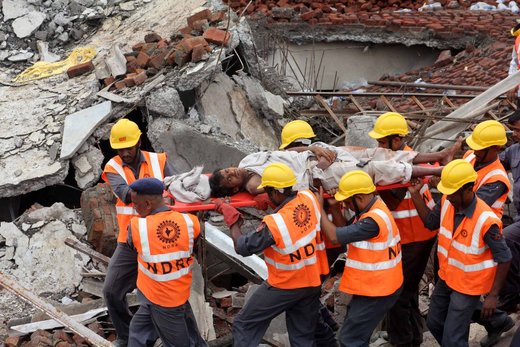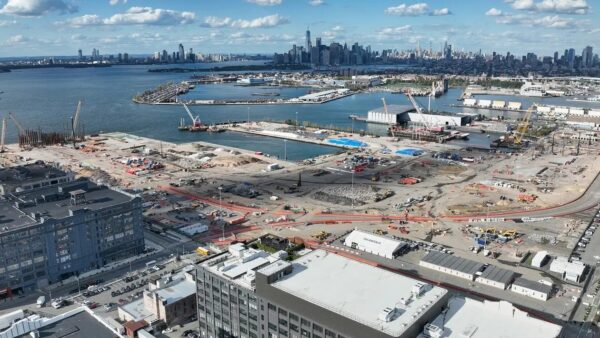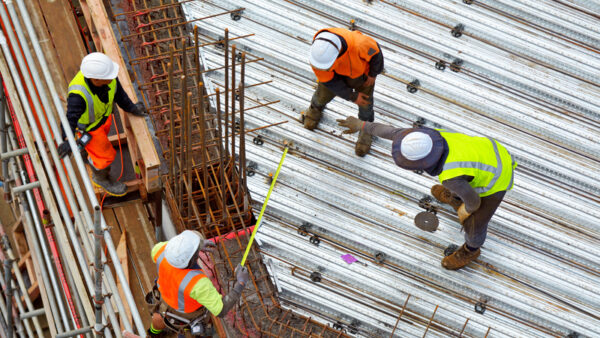20 September 2013
By Mark Richards in Mumbai

Building safety in South Asia made global headlines this year when a clothes factory in Bangladesh collapsed, killing more than 1,100 people.
It was one of the world’s worst industrial accidents, and the second deadliest industrial disaster in the region after the Bhopal disaster of 1984.
And yet it could have been even worse. Between 2,000 and 3,000 people, most of them female garment workers, are believed to have been in the complex when it suddenly came down.
The Bangladeshi government has since announced that it will pay the equivalent of $250 in compensation to each family who lost a relative in the tragedy.
But the collapse at Savar, near Dhaka, was only the most high profile in a grim summer of building disasters.
Days later a building housing a garment factory near Mumbai collapsed, killing one person and injuring 24. This was followed by a seven-storey building collapsing in Mumbai, which killed 74 people including 18 children.
On 28th August a 12-year-old residential complex collapsed in the Indian city of Vadodara, killing 11 people and leaving several injured and as many as 40 more trapped beneath the rubble.
Shortly after the building adjacent also collapsed, leaving no one seriously injured as evacuation procedures were already in place.
Residents, alongside the Gujarat Congress leaders have accused the Vadodara Urban Development Authority (VUDA) for allowing the poor quality of construction.
The litany of collapses is not confined to poor parts of India.
In September the most expensive retail location in the country, Delhi’s Khan Market, suffered a partial collapse. On this occasion there were no fatalities, but the New Delhi Municipal Council (NDMC) has declared the building dangerous and given the owners seven days to make the structure safe.
These catastrophes have thrown the spotlight on a flourishing and corrupt system of workplace practices that keep prices low on Western high streets by putting faraway lives at risk.
The people who bear those risks live and work in miserable conditions where their deaths carry pitifully small consequences for employers or, it would seem, for the state.
Official figures from building inspections across South Asia (mainly India & Bangladesh) have revealed that six out of every ten factories here are unsafe.

THANE, INDIA – JULY 4: Rescue crews remove survivors at a garment factory that collapsed in Thane, India on 4 July, 2013. Three people were killed and 24 reported injured. (Praful Gangurde/Hindustan Times/Getty Images)
Safety records of factories in India and Bangladesh are unacceptable and to prevent future tragedies big multinationals like Gap, Tesco and M&S are consolidating their individual efforts to bring about real and sustained progress.
A group of mainly European retailers has finalised a plan to conduct coordinated inspections of factories in Bangladesh and India in an attempt to prevent a repeat of the Savar disaster.
Retailers that have signed the new agreement include Debenhams, Tesco, Marks & Spencer and Sainsbury’s.
The aim of this agreement is to quickly reduce the severe hazards facing workers, with further plans for renovations and repairs to be put in place following inspections.
Even though multinational companies have been quick to sign a safety accord, will it actually bring change?
Justine Greening, the UK’s International Developmental Secretary, welcomed this move saying that the Rana Plaza collapse in Bangladesh “was a wake up call, highlighting the urgent need to improve safety standards for employees in developing countries.”
She states that “the UK Government is working with Bangladeshi authorities to offer technical support and advise on standards, but that UK retailers also have a role to play.”
One of our UK-based retail clients has been quick off the mark and recently sent a health and safety team from the UK to inspect safety standards in their ongoing projects in India.
They also visited a DFID site we are managing for the British High Commission, and were very impressed by the health and safety standards adhered to in the project and wanted similar standards to be common practice across India.
Their visit was followed by a health and safety workshop to raise awareness across all their projects in light of the recent incidents.
Turner & Townsend takes safety very seriously and has been working with a number of other clients to improve standards on construction sites in India.
All of this serves to highlight the importance not only of health and safety during construction, but also the necessity of making sure buildings are properly constructed and maintained.
That message is getting through to the authorities in South Asia, but I fear more lives will be lost in dangerous buildings before it becomes truly ingrained.
Mark Richards is managing director for Turner & Townsend in India






